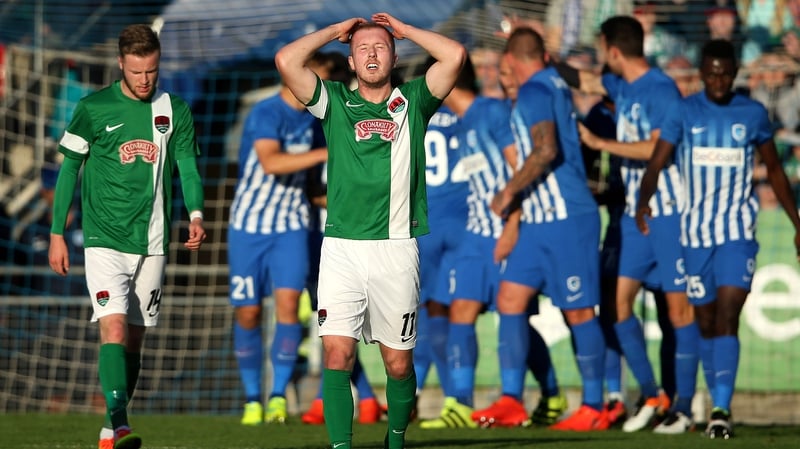On Monday Brighton & Hove Albion rubberstamped their promotion to the Premier league. Their promotion has led to the annual questions and predictions of how will they fare next season. The cliche being that newly promoted teams always tend to struggle and go down. A perceived gulf between Premier league and football league in terms of finance is a major factor in how well or poor teams do. Brighton now have access to the cash bonanza that is the Premier league TV money. So just how do newly promoted teams fare in the season after promotion. For this I examined all the promotions in five European leagues going back to the 1991-92 season.
England
We'll start in England with the richest league in the world. Between 1991-92 and 2015-16 there were seventy-five promotions into the top flight. Of those seventy-five, thirty-three were relegated in their first season in the top division. Percentage-wise this translates to just under 45%. A fascinating figure given how pundits and experts usually predict doom and gloom for newly promoted clubs.
In the time period studied there has only been two occasions where none of the promoted clubs suffered relegation (2001-02 & 2011-12). While the 1997-98 season was the sole occasion where all promoted sides headed straight back down. Collectively forty-four percent is a fairly decent percentage for newly promoted clubs, further breaking down of the stats isn't pleasent reading for teams coming up via the play-offs however. Twenty-five promotions have come through this route and sixteen have resulted in relegation giving us a 64% going down rate.
France
Across the channel in France the figure of relegation after promotion is even more favourable. From 1991-92 to 2015-16 seventy-four promotions occured. Twenty-six of those ended in the agony of relegation, which leaves a 37% relegation rate.
In the time period France has yet to see a season where all promoted teams went down together. On the flip side there were five seasons (13-14, 05-06, 99-00, 94-95 & 91-92) where all promoted teams stayed clear of the trap door.
Going up as second tier champions in France greatly enhances your survival hopes. Of the twenty-five promotions in this category just seven went down which is just 28%.
However what is more astounding is that the third promoted side has been relegated 32% in the time period compared to 44% for the second promoted sides.
Germany
The Bundesliga's format over the time period saw the fewest number of promotions with sixty-nine. Twenty-four of which ended in relegation the following year. In the five leagues examined, Germany had the highest number of seasons where no promoted teams tasted relegation. A total of eight seasons (15-16, 09-10, 08-09, 06-07, 04-05, 97-98, 96-97 & 95-96). Only one season (92-93) saw all newly promoted sides go down.
Germany is also the only one of the five leagues in the time period where a newly promoted team went on to win the top division title. That was Kaiserslautern in 1997-98, a quite remarkable achievement. Kaiserslautern went up as second tier champions and only six of those were relegated in the time frame, a 24% relegation rate, the lowest of the five leagues.
Italy
Serie A had the most promotions in the time period with ninety-one. This was down to promoting four clubs each season from 91-92 until 03-04. Out of those promotions, thirty-three were relegated, for a relegation rate of just over 36%.
However an interesting observation from the statistics here is that going up as the second best team has the best chance of staying up. Just six in this category have been relegated which leaves a 24% relegation rate.
Serie A has had three seasons (07-08, 06-07 & 95-96) where none of the promoted clubs went down. Serie A has also not had a season in the time frame where all promoted teams went down. A special mention must go to 2005-06 where, due to league restructuring, there were six newly promoted teams, just one went down.
The best performance from a promoted team was Juventus' 3rd place in 2007-08.
Spain
La Liga had seventy-four promotions and just twenty-five of them resulted in relegation, for a 34% relegation rate. On seven ocassions (15-16, 13-14, 11-12, 00-01, 94-95, 92-93 & 91-92) all promoted clubs stayed up. 1996-97 was the only season that saw all promoted teams go down.
A pattern of fascination is that in the time period only four runners-up have relegated leaving an incredible relegation rate of just 16%, the lowest of any category in the five leagues.
In terms of best performing, that honour goes to Real Betis and their 3rd place in 1994-95.
Conclusion
The main point I wanted to prove here was that newly promoted teams do in actual fact have as good a chance as any of competing in the higher division. All of the claims such as 'they'll struggle as usual','they'll find the step up too difficult' etc, aren't really true. The statistics in a time period of twenty-five years shows that in all five leagues less than half of the promoted teams suffer relegation. The exact overall picture is one hundread forty-two relegations out of three hundread eighty-three promotions for a 37% relegation rate.
Statistically Spain has the best survival chances for newly promoted teams with the financial gap between bottom end La Liga and Segunda seemingly not insurmountable.
England has the worst survival chances at 44% but still enough to give hope. The reason for their high percentage is down to the massive gulf in wealth between Premier league and football league.
Germany was the only league of the five to remain in the same format throughout the time period. Their figure of 35% therefore represents an accurate rate. Italy's four up four down for more than a decade saw them with the most promotions. There might be a further format change in the pipeline given the very poor performance this season at the bottom.

